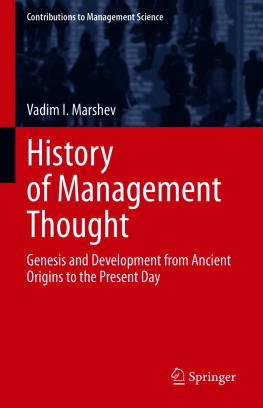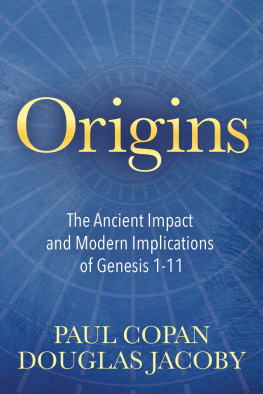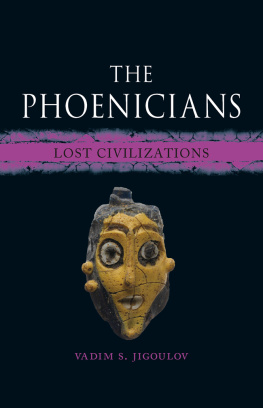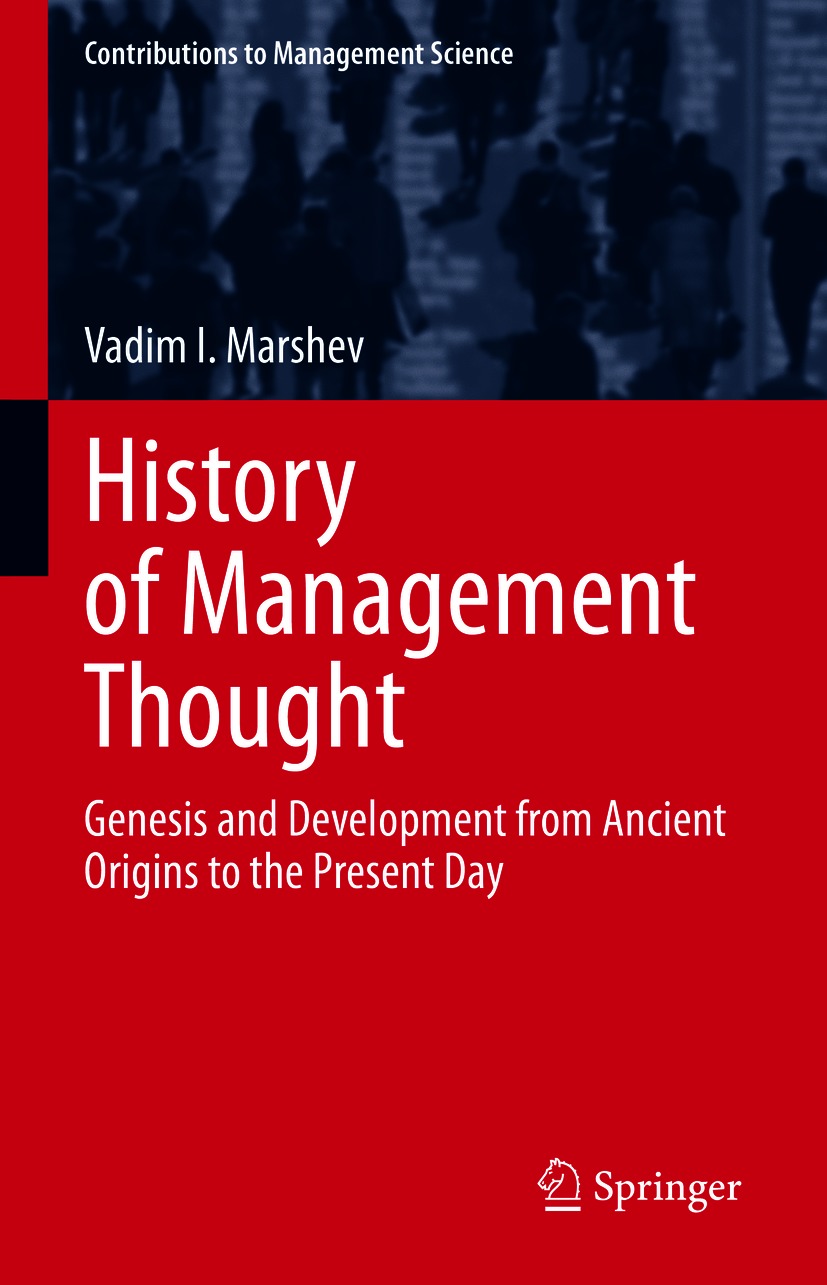Contributions to Management Science
The series The series Contributions to Management Science contains research publications in all fields of business and management science. These publications are primarily monographs and multiple author works containing new research results, and also feature selected conference-based publications are also considered. The focus of the series lies in presenting the development of latest theoretical and empirical research across different viewpoints. contains research publications in all fields of business and management science. These publications are primarily monographs and multiple author works containing new research results, and also feature selected conference-based publications are also considered. The focus of the series lies in presenting the development of latest theoretical and empirical research across different viewpoints.
This book series is indexed in Scopus.
More information about this series at http://www.springer.com/series/1505
Vadim I. Marshev
History of Management Thought
Genesis and Development from Ancient Origins to the Present Day
1st ed. 2021

Logo of the publisher
Vadim I. Marshev
Faculty of Economics, Moscow State University, Moscow, Russia
Translated by Oleg Geraschenko
ISSN 1431-1941 e-ISSN 2197-716X
Contributions to Management Science
ISBN 978-3-030-62336-4 e-ISBN 978-3-030-62337-1
https://doi.org/10.1007/978-3-030-62337-1
Moscow State University Lomonosov 2021
This work is subject to copyright. All rights are reserved by the Publisher, whether the whole or part of the material is concerned, specifically the rights of translation, reprinting, reuse of illustrations, recitation, broadcasting, reproduction on microfilms or in any other physical way, and transmission or information storage and retrieval, electronic adaptation, computer software, or by similar or dissimilar methodology now known or hereafter developed.
The use of general descriptive names, registered names, trademarks, service marks, etc. in this publication does not imply, even in the absence of a specific statement, that such names are exempt from the relevant protective laws and regulations and therefore free for general use.
The publisher, the authors and the editors are safe to assume that the advice and information in this book are believed to be true and accurate at the date of publication. Neither the publisher nor the authors or the editors give a warranty, expressed or implied, with respect to the material contained herein or for any errors or omissions that may have been made. The publisher remains neutral with regard to jurisdictional claims in published maps and institutional affiliations.
This Springer imprint is published by the registered company Springer Nature Switzerland AG.
The registered company address is: Gewerbestrasse 11, 6330 Cham, Switzerland
For Ella and our children
Preface to the Current Edition
In the new edition of the textbook History of Management Thought, as in previous editions, starting in 1987, we are talking about the multi-thousand-year world history of management thought (HMT). The main difference from the 2005 edition is the updating and addition of part of the textbook sections with the results of the latest research in the history of management, business, and management thought. Among the sources of updates and supplements are the works of international conferences on the History of management thought and business (HMT&B) conducted since 1996 at the Faculty of Economics of Lomonosov Moscow State University (FE MSU), the work of the annual International Business History Conference sponsored by the Harvard Business School (USA), materials of the meetings of the Academy of Management (AOM USA), the authors research papers, and studies of my learnersstudents and masters and postgraduate students at the Faculty of Economics of MSU. It was recent researchers who encouraged the reissue of the textbook, offered the results of their studies as materials for the new textbook, and thus helped update it.
Management issues have been and continue to be the focus of attention of business circles, political elites, the public, educators, and management consultants. Representatives of these communities have often been the authors and implementers of management ideas. The main motives of search, formation, and development of management ideas have always been to ensure the well-being, welfare, and safety of members of the social organization (family, enterprise, state, society) and hence the increase of efficiency and effectiveness of management decisions, continuous improvement of management of the organization, and increase of efficiency and effectiveness of the activities of organizations. It is this process of emergence, formation, and development of management ideas on a long time interval in different regions of the world that this tutorial is devoted to.
This tutorial attempts to analyze and synthesize the theoretical and applied developments devoted to management of various organizations in different specific historical eras. The authors of the developments were representatives of civilizations of the ancient East, China, India, Greece, and Rome, feudal medieval states, the first capitalist states, and the modern states of Germany, England, Austria, the United States, Russia, and others. Covering a long period of time (the IV millennium B.C. to the beginning of the twenty-first century) and limited by the scope of the textbook, the author did not always collate the enunciated material or perform a comparative analysis of the views on management and sent the reader to relevant literature or to carry out independent research and projects on the proposed topics (see Appendix 1).
The tutorial is intended for teachers and students. The textbook is the basis for the history of management thought in the bachelors and masters programs at economics faculties, management faculties, business schools, and management schools at higher education institutions, for students in management of an organization, general and strategic management, business management, entrepreneurship, public administration, financial management, innovation management, regional management, industry management, and other managerial specialties.
Vadim I. Marshev
Oleg Geraschenko
Moscow, Russia Moscow, Russian Federation
Acknowledgments
In the preparation of the new textbook, the authors colleagues, staff from the Department of Management of an Organization and the History of the National Economy of the Faculty of Economics of Lomonosov Moscow State University, and, of course, as mentioned above, participants of international conferences on HMT&B provided professional assistance with advice and suggestions.
The author expresses his special gratitude to three persons:
Professor David Borisovich Yudin, who took me after graduating from the Faculty of Mechanics and Mathematics of the Moscow State University MSU to the postgraduate study of the Faculty of Economics of the MSU, fascinated me with modeling economics and stochastic programming, supervised me in graduate school, and brought me to defend my Ph.D. thesis in 1971 on the topic Static models of economic equilibrium












